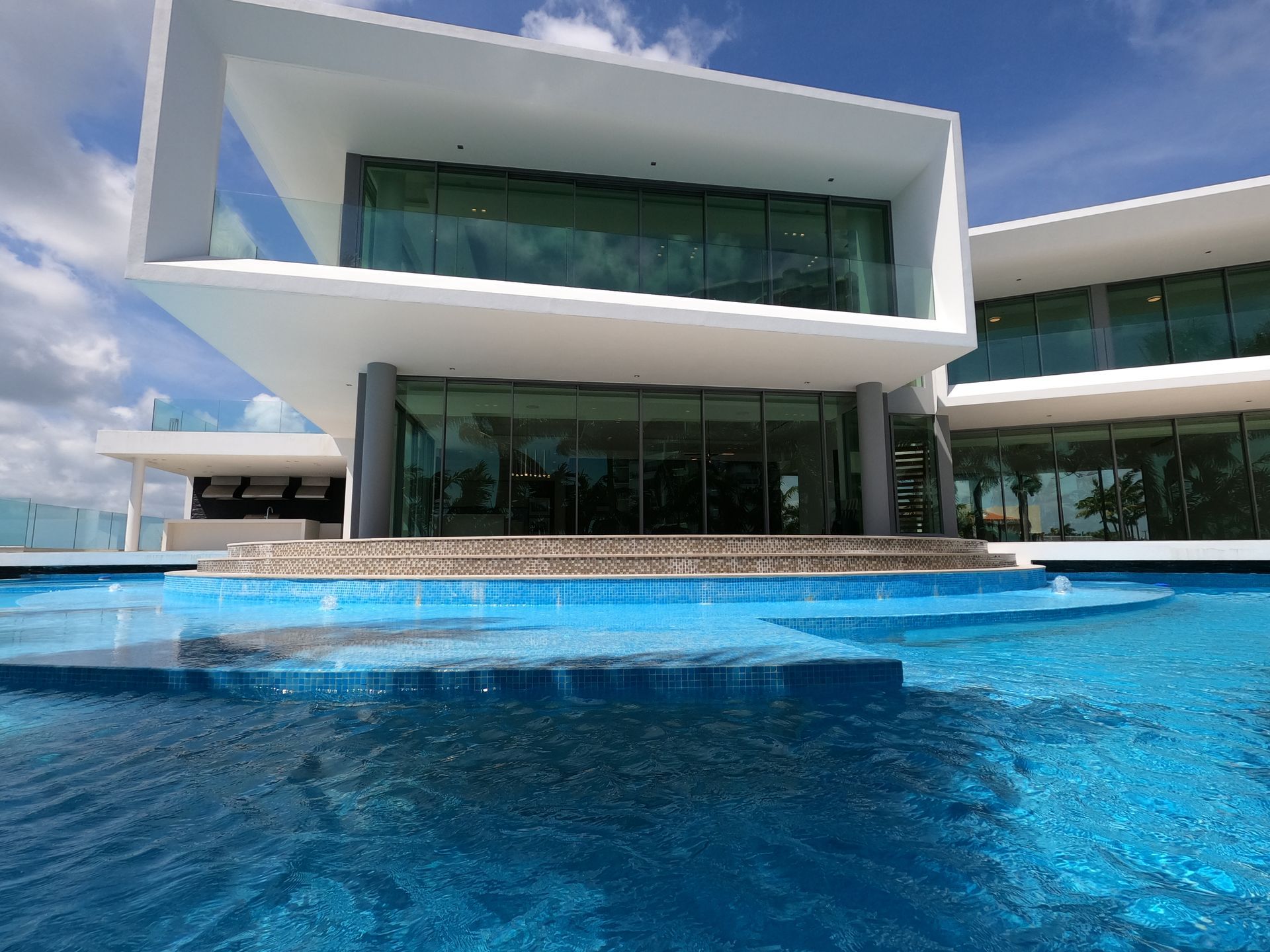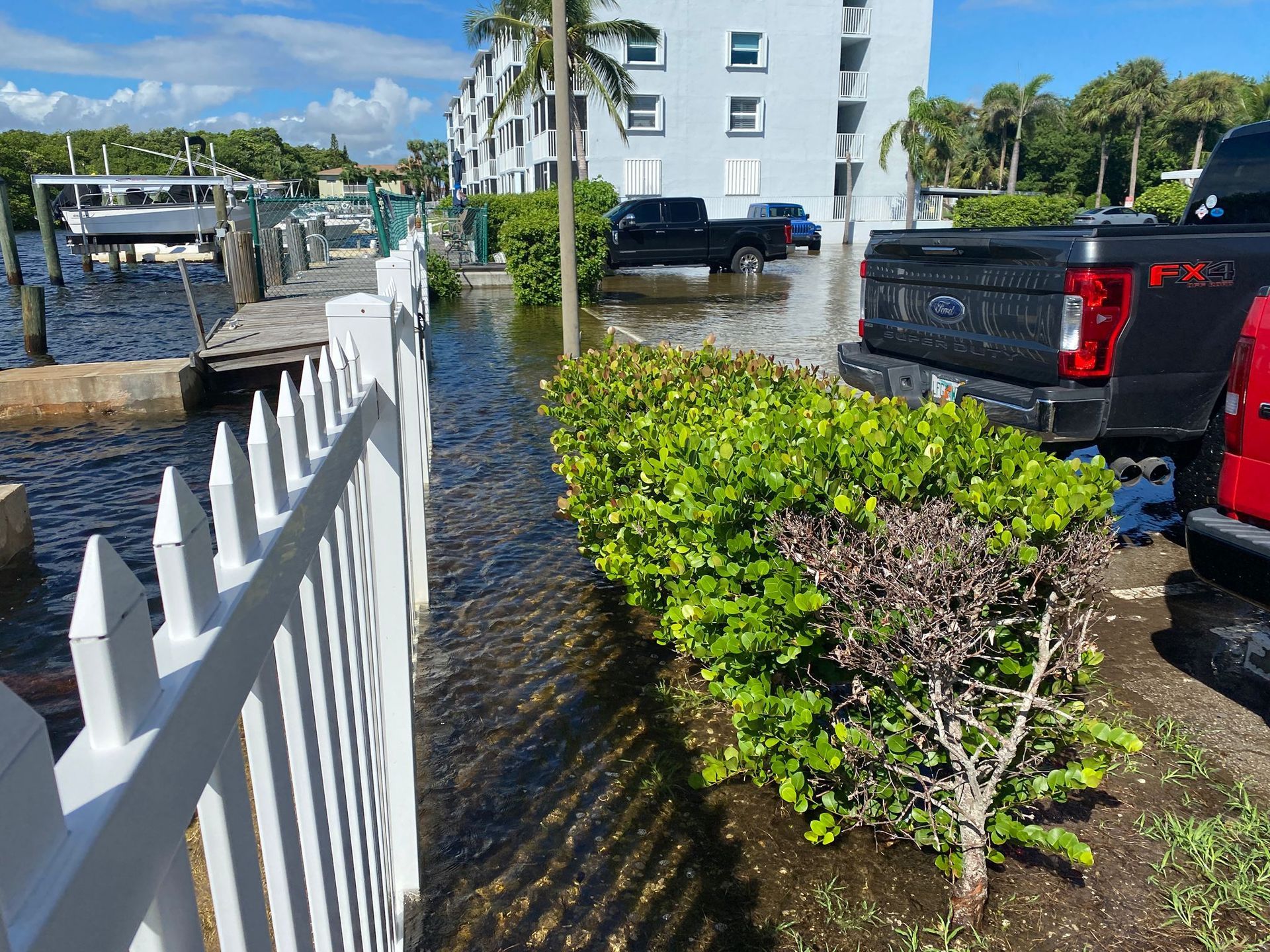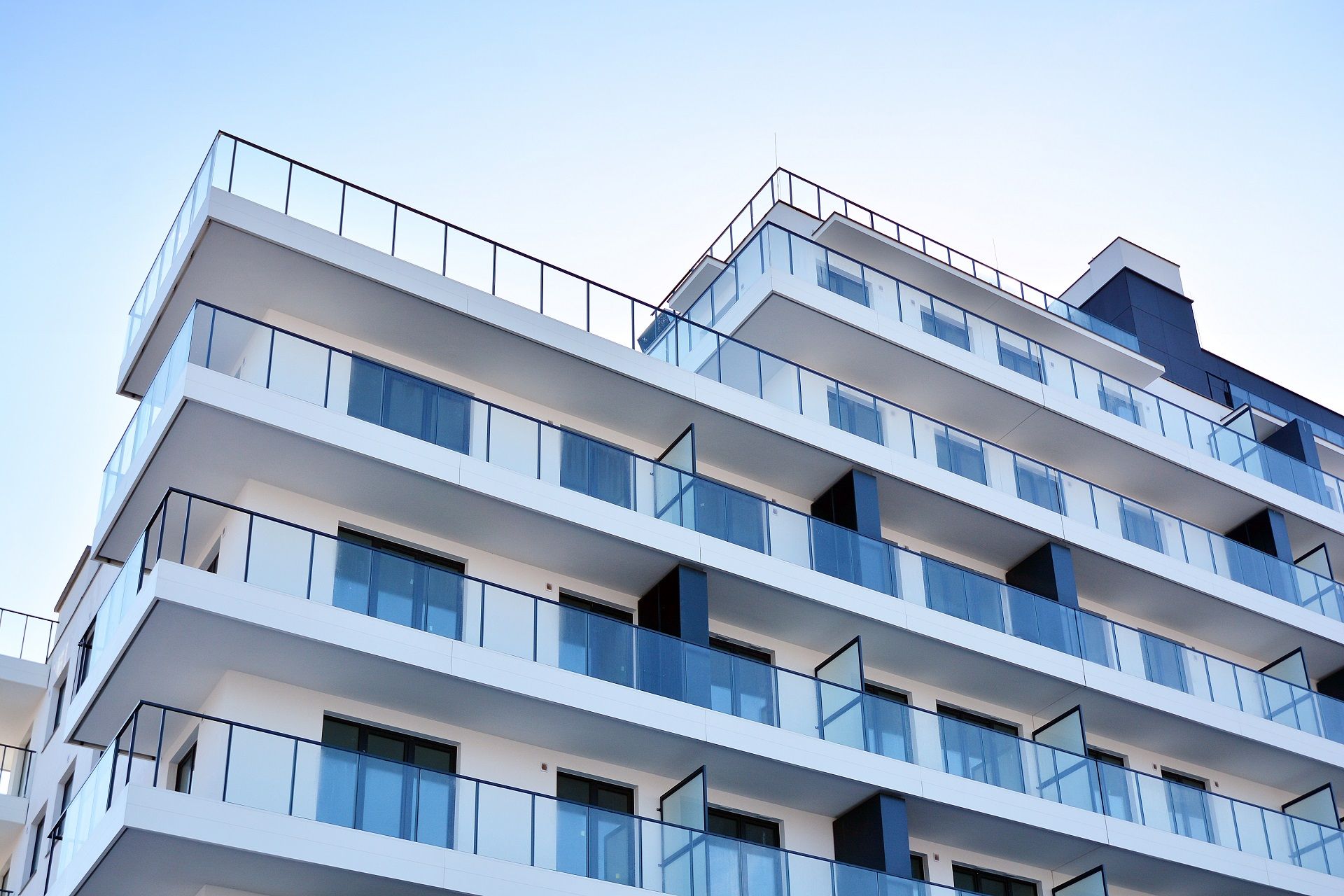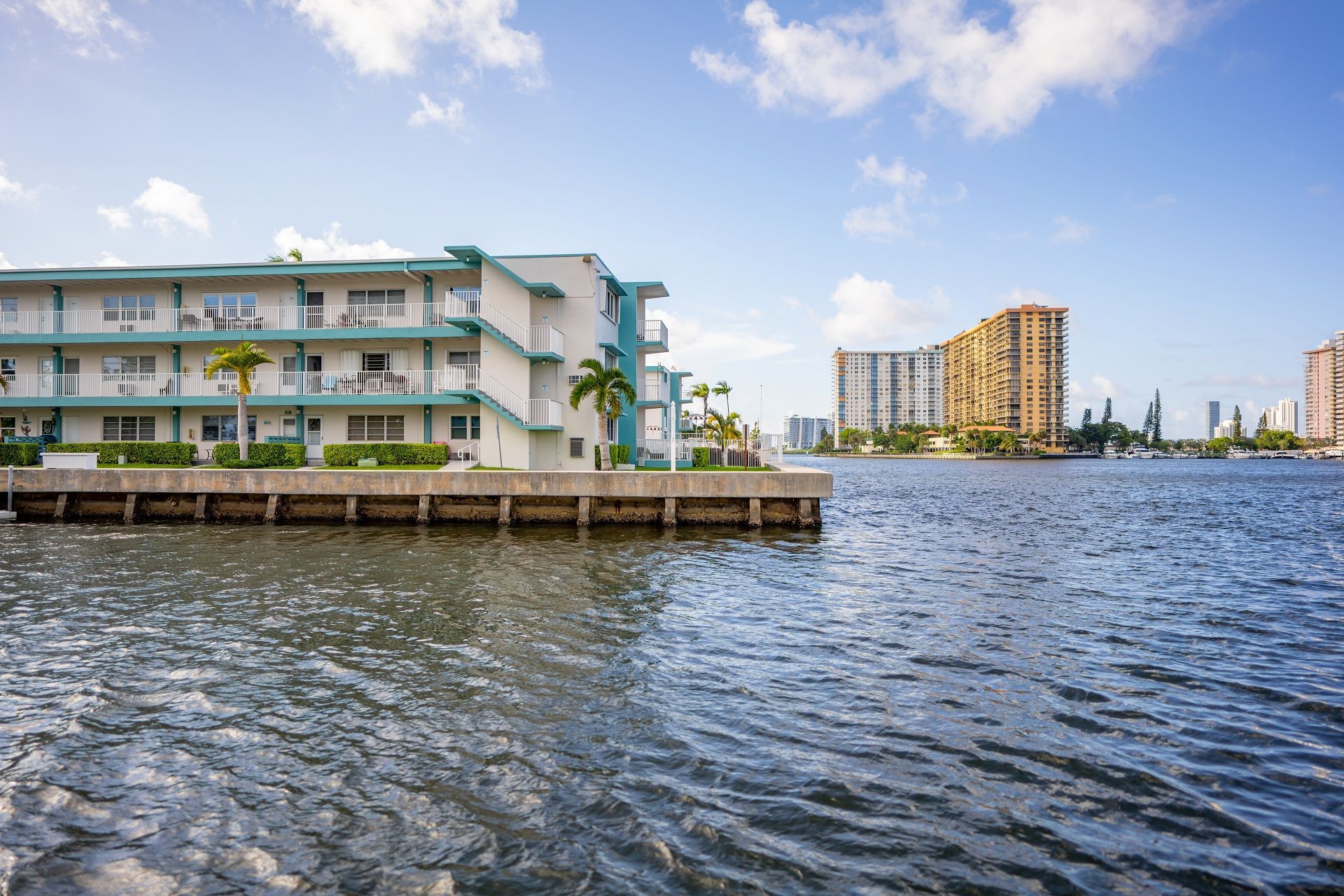What is the Difference Between a Residential Seawall Inspection and a Commercial Seawall Inspection?
Seawalls are vital structures for waterfront properties, acting as a barrier against erosion and protecting land from the relentless power of waves.
Regular inspections, whether for a residential property or a commercial establishment, are crucial for ensuring the seawall's integrity and preventing potential disasters. However, the specific focus and procedures involved in a residential seawall inspection can differ from those of a commercial seawall inspection.
What is a Seawall?
Before diving into the specifics of inspections, let's establish some common ground. A seawall is a construction erected to prevent the sea from eroding an area of land. They can be constructed from various materials with sheet piles, concrete, and stone being the most common.
Regardless of the material, a seawall will absorb the impact of waves and tides, thereby minimizing any land erosion.
To operate properly,
seawalls require regular maintenance and inspections that are essential for detecting damage early on and preventing costly repairs or even a complete seawall failure.
Residential Seawall Inspections Explained
Residential seawall inspections are typically conducted for single-family homes or small waterfront properties. The inspector will focus on the overall condition of the seawall to ensure it's functioning as intended and protecting the property.
The inspector will thoroughly examine the seawall for cracks, leaks, movement, or signs of deterioration in the building materials. This includes looking for erosion around the seawall base and checking for any distortion or settlement of the land behind the wall.
They’ll also evaluate the condition of the seawall materials themselves. For wood seawalls, this might involve checking for rot or insect damage. For
concrete seawalls, cracks and spalling (flaking of the concrete surface) will be a focus. Stone seawalls will be inspected for loose stones or signs of movement within the wall's structure.
It’s also necessary to check the drainage around the seawall as proper drainage is critical to prevent water buildup behind the wall, which can create pressure and lead to structural problems.
Following the inspection, the inspector will provide you with a detailed report that includes photos of the seawall, descriptions of any damage found, and recommendations for repairs or further evaluation.
Commercial Seawall Inspections Explained
Commercial seawall inspections broaden in scope to accommodate the greater complexity and potential hazards associated with commercial waterfront properties. These properties might include docks, marinas, resorts, or industrial facilities.
Although similar to residential seawall inspections, commercial evaluations are much more serious and the inspector will likely pay more attention to the seawall's structural integrity due to the potential consequences of failure.
This might involve taking core samples of concrete seawalls to assess theground-penetratingth or using ground penetrating radar to check for hidden voids behind the wall.
Commercial properties often have docks or other structures attached to the seawall. The inspector will assess the condition of these structures as well, looking for signs of damage that could compromise the seawall's stability. This might include checking for corrosion on metal pilings or rot in wood dock components like decking and supports (depending on the dock material).
For commercial purposes, it’s also necessary to confirm if the seawall complies with specific building codes and environmental regulations. They’ll also uncover if there are any areas where the seawall in question is not up to standards.
Lastly, commercial seawall inspections place a strong emphasis on public safety. This is because commercial waterfront properties are often public access areas requiring the inspector to look for hazards like uneven surfaces, trip hazards, or deteriorated walking areas on top of the seawall that could pose a risk to visitors.
What are Condominium Association Seawall Inspections?
For waterfront condominiums or communities, seawall inspections become even more intricate. Since the seawall is considered a common area, the responsibility for maintenance and inspections falls on the homeowner's association (HOA).
In this case, the costs associated with the inspection and any necessary repairs will be shared among the homeowners according to the HOA rules and regulations.
The HOA is also responsible for communicating the findings of the inspection report to all residents in a timely manner. This transparency allows homeowners to understand the condition of the seawall and the potential impact on their property values.
How to Choose a Qualified Inspector?
Similar to a home inspection, it's crucial to choose a qualified and experienced professional to inspect the seawall. Look at the inspector’s credentials. Licensing and certifications are very important as you don’t want someone without a valid license checking such a crucial aspect of the property.
You should also seek out an inspector with experience in inspecting seawalls made from the same materials as yours. For instance, if you have a wood seawall, find an inspector with experience in wood seawall inspections.
Verify that the inspector has general liability and errors and omissions insurance to protect you in case of any issues arising from the inspection.
It’s also helpful to check out the inspector’s online reviews and ask the inspector for references from past clients. Contacting these references can give you valuable insights into the inspector's work ethic and the quality of their reports.
Leave No Stone Unturned
Regular seawall inspections are essential for both residential and commercial waterfront properties. Understanding the differences between residential and commercial seawall inspections can help you choose the right service for your needs. By hiring a qualified inspector and addressing any identified issues promptly, you can ensure the longevity and integrity of your seawall and protect your valuable waterfront property.
For a reliable and experienced seawall inspection partner, consider
Certified Inspectors.
With over 30 years of experience in the industry, they have a proven track record of providing comprehensive and accurate seawall inspections for residential and commercial properties. Our team of qualified inspectors utilizes advanced techniques and equipment to assess the condition of your seawall and identify any potential problems.
We’ll provide you with a detailed report outlining their findings and recommendations for repairs or maintenance, ensuring you have the information you need to make informed decisions about your seawall.
Contact Certified Inspectors today to
schedule your seawall inspection and gain peace of mind knowing your waterfront property is protected.
Disclaimer: The information on this website and blog is for general informational purposes only and is not professional advice. We make no guarantees of accuracy or completeness. We disclaim all liability for errors, omissions, or reliance on this content. Always consult a qualified professional for specific guidance.
Share the post:






